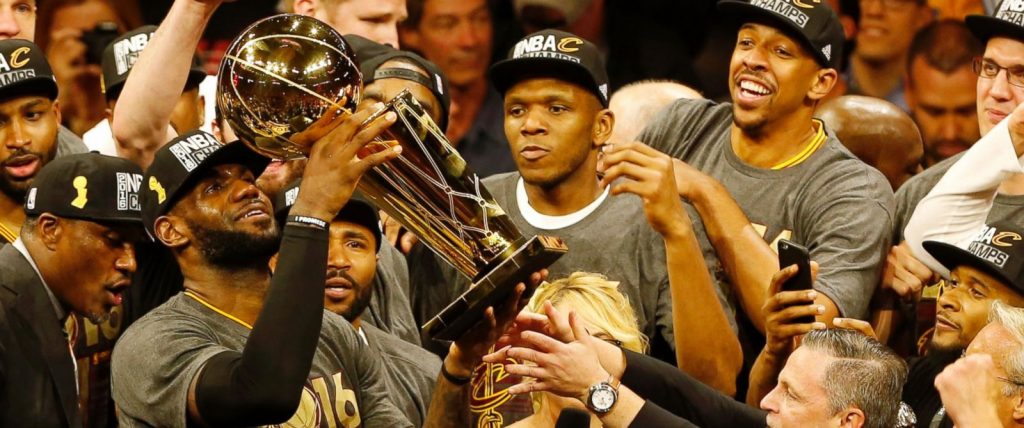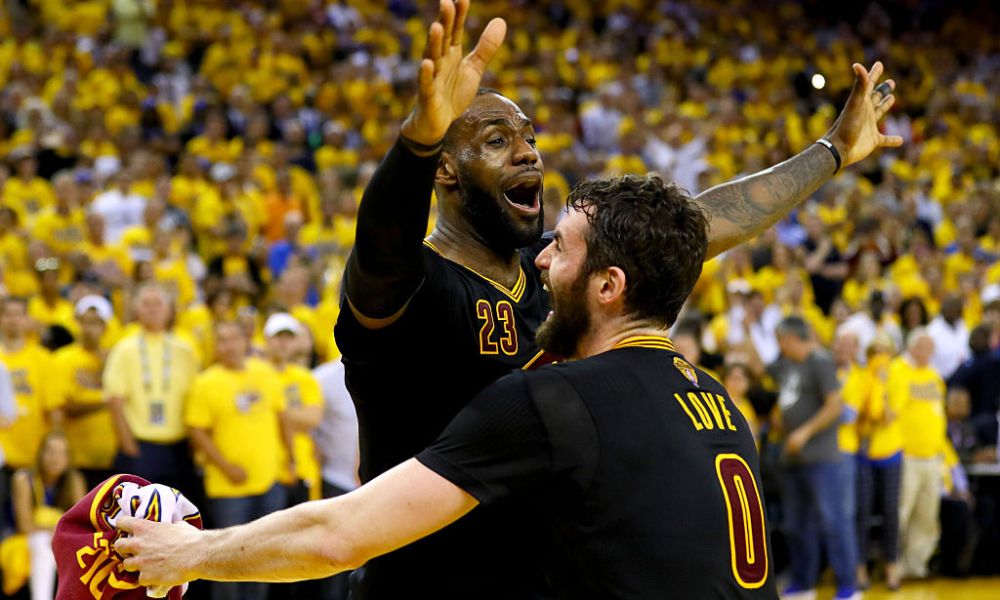What leadership lessons can be learned from the 2016 Cleveland Cavaliers? originally appeared on Quora – the knowledge sharing network where compelling questions are answered by people with unique insights.
Answer by Chris Herd, CEO and Founder: IGLU & myCarson, on Quora:
Commitment, grit, passion, perseverance, the ability to overcome adversity, sacrifice for the greater good of the team, luck, realization of talent, and redemption.
- There’s nothing wrong with failure if you learn from it. The Cavs lost the first two games by a combined 48 points, the most in history. In the remaining 6 games, they were able to employ what they learned from these first two performances to create a plan to attack weaknesses they had seen.
- Being down 3-1, a historically insurmountable hole that had never been overcome in NBA finals history, it would have been easy to believe the outcome was an inevitability. Instead, the supporters of the team rallied like never before and were able to infuse the players with a passion and level of support they had never experienced before. It inspired them to recognize that they were playing for something bigger than themselves. By overcoming the adversity of such an huge deficit, the Cavs made history and brought unprecedented success to an area in the midst of a 52-year drought.

- You can’t do everything on your own. Trust and belief in those around you to do their jobs has to exist or you will never achieve your collective dreams. The difference in results between last year and this one is indicative of that. Granted, a few key pieces may have changed, but I can’t see how last year’s result would have been any different than this. In order to achieve, you need to have a team in place that knows its strengths and plays to them. Every part of the team is as important as another and you have to trust the man/woman next to you to do their bit. Cleveland did that this year.
- They weren’t scared to make a change. Although they were ticking along at a decent rate mid-season, management recognized all was not right. Instead of riding out the season and waiting to see what happened, management was proactive. They sacked the manager and replaced him with someone internally who already had the pulse of the team. The change proved to be the spark that ignited the team and significantly improved its performance, ultimately leading to a championship. Some decisions aren’t easy; it would be far simpler to sit back to wait and see what happens, but when you realize you have made a mistake, it is essential that you act as quickly as possible to rectify it. It is often the difference between languishing in mediocrity and making that jump to being champions.

OAKLAND, CA – JUNE 19: LeBron James #23 and Kevin Love #0 of the Cleveland Cavaliers celebrate after defeating the Golden State Warriors 93-89 in Game 7 of the 2016 NBA Finals at ORACLE Arena on June 19, 2016 in Oakland, California. NOTE TO USER: User expressly acknowledges and agrees that, by downloading and or using this photograph, User is consenting to the terms and conditions of the Getty Images License Agreement. (Photo by Ezra Shaw/Getty Images) - Kevin Love is a superstar. By every metric, past performance, and egotistically, he is one of the very best basketball players on the planet. I know some will argue that might no longer be true, due to regression in those numbers and less of a leading role, but I would argue the complete opposite. Love sacrificed personal glory for the opportunity to experience success as part of a team. In sports and in life, it is essential we recognize when it’s our fight and when overall success is increased by playing a supporting role. In my opinion, Love has done the most selfless thing any sportsman can ever do: he recognized the Warriors’ strengths and weaknesses and understood that the team’s goals were better served by deferring responsibility. The result: a championship and Love contributing to one of the signature defensive stands of the series to deny Curry at 3 at the close of the 4th quarter in game 7.
- Luck. Luck is everywhere in sports. Cleveland got a whole lot of luck born from the stupidity of Green in game 4. If it doesn’t occur, does Cleveland come back and win? Impossible to ever know, but it certainly made the most crucial game 5 that little bit easier. It speaks of the margins at the highest level. One small action can have an incomprehensible effect on the future of an organization.
- LeBron James was the prodigal son. Since his precocious teenage years, he had been assured success and was well on his way to fulfilling all foretold prophecies right up until he didn’t. Strained beneath the weight of expectations, LeBron’s will cracked and he departed for pastures new in order to realize his championship dreams. Upon doing so, he recognized that although fundamentally he had achieved what he set out to, it wasn’t exactly what he craved. Not unlike Steve Jobs returning to Apple, LeBron returned to Cleveland. Having gone from revered to hated, the relationship came full circle and recognized James’s desire to bring the city what it had always dreamed of. The championship is a culmination of a life’s work for James. It speaks of what can be achieved when you work hard every single day. LeBron’s early career was filled with the same highlight reel plays that follow him through to today, but he is now a completely different player. He has grown up and experienced firsthand that talent isn’t enough. He has worked harder than anyone to achieve what he has and he deserves everything he gets. LeBron’s return showed a critical element of leadership: you need someone with a vision and a map to achieving it. You need someone who unmercifully pursues that in spite of everything else that stands in the way. He has been criticized and much maligned for huge swathes of his career, mostly unfairly, but one thing cannot now be argued. LeBron James is the most inspirational of leaders; he leads by doing.

